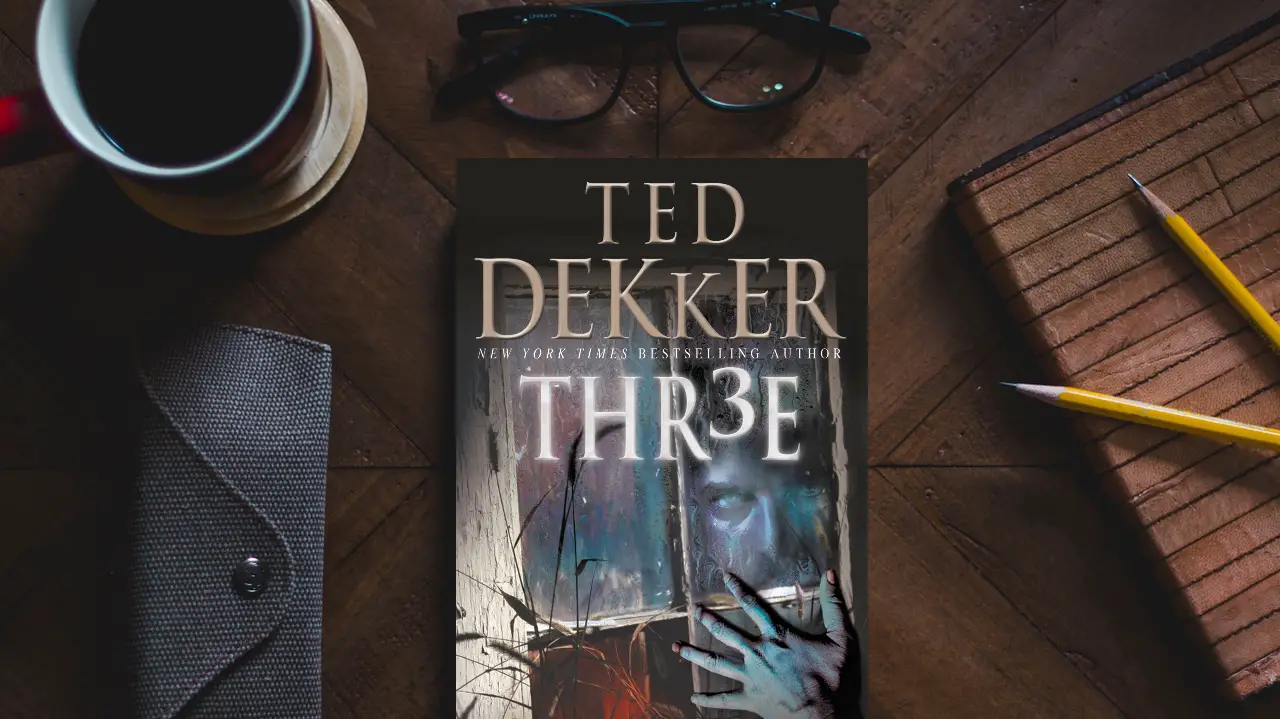Kevin Parson’s lived a pretty good life. He doesn’t have any major flaws, doesn’t have a dark and twisted past, and is currently in seminary studying to be a pastor. Sure, his life isn’t the best it could be. He’s a bit of a recluse and doesn’t quite know how to handle himself around people. But he’s a pretty decent person who’s pretty intelligent; what major faults does he have? None that he can see at least.
That is, not until a man calls him demanding that he confess his secret sin to the world within the next three minutes or watch his car blow up.
And, of course, things only escalate from there.
Thr3e (no, that’s not a typo) starts off with a pretty steady pace and only gets faster from there as Kevin is forced to match his wit against this man who seems determined to torment him by throwing him back into a past that Kevin would have rather forgotten. Because while Kevin may not have committed any deep, dark sins, his past was unpleasant enough that he would rather block it out of his memory. The police can provide little help against this psychopath. And the longer it takes Kevin to figure out and confess his own sin, the more the violence threatened and enacted by the psychopath escalates.
In many ways, Thr3e is a great example of what a well-done Christian novel should look like: a novel where the message springs naturally from its story. As you can probably surmise, the premise of the story gives a lot of potential for a strong message, and it only gets stronger from there as Kevin is forced to confront the evil that is in the world—and not only in the world, but in himself as well. The more the story unfolds, the more Ted Dekker shows the twisted nature of sin, and that can make the reader uncomfortable. But such is as it should be: sin ought to make us uncomfortable after all.
A lot of Christian novels either fail at being engaging stories or fail at giving a subtle but powerful message. With this novel, Dekker avoids both traps by telling a story that is both really interesting and truly deep and impactful. While the ending spells out the message of the story more directly than I would have liked (see the discussion question below), overall, this is a great example to look at on how a good Christian novelist can successfully blend enjoyment with instruction. So if you’re looking for a thriller told by a skilled Christian novelist, this is an excellent book to pick up.
Discussion Questions:
Compare Slater to Satan, specifically Satan’s description as “the accuser of the brethren” in Revelation. How is Slater like Satan? What relevance does this have to Slater’s symbolical role in the story?
Toward the end, the priest draws out a pretty clear analogy between the main characters of the story and certain spiritual truths. As a writer, what do you think of making a clear analogy like this within a story? Is it good to draw out analogies as clearly as this in order to make sure the reader gets the point? Or should we try to hide these analogies more so that the reader has to look in order to find it? How clear should an author make a story’s message to a reader?


*stares at my to-read bookshelf that is sagging a little in the middle* Why must there be so many good books out there? XD Thanks for sharing, Josiah! I’ll definitely have to check this book out.
My to-read shelf has been regularly doubling each year for the past several years. xD I have no idea how I’m going to keep up.